Ever wonder why your car is begging for that regular oil change? It’s not just a suggestion—it’s essential to keep your engine purring like a happy cat. Why is oil change important? Think of oil as the lifeblood of your vehicle, keeping all the moving parts lubricated and running smoothly. Without it, things can go south pretty quickly, like overheating, poor performance, or even costly breakdowns. So, if you’ve been putting it off, this might just be the nudge you need! Let’s dive into why this simple maintenance step makes a huge difference.
Oil changes are important because they keep your engine clean, lubricated, and running efficiently, preventing wear, overheating, and costly damage.
The Role of Oil in Your Engine
So why is it important to change your oil regularly? Well, oil is the unsung hero of your car’s engine. It works tirelessly to keep everything running smoothly by cooling, cleaning, and lubricating components under extreme heat and pressure. Think of it as your engine’s personal bodyguard, stepping in to fight off friction and wear while keeping things clean from dirt and debris. The right maintenance ensures your vehicle stays efficient, reliable, and ready for every adventure, whether it’s a quick grocery run or a long road trip.
How Oil Protects Moving Parts
Imagine your engine parts as dancers in a tightly choreographed routine. Without oil, they’d trip, collide, and create a chaotic mess. Oil creates a slick, protective layer that prevents friction and overheating, helping those parts glide effortlessly. Over time, dirt can sneak in and thicken the oil, causing it to lose its magic touch. That’s why it’s crucial to keep it fresh and clean. Don’t let neglect turn your engine’s dance floor into a war zone.
Why Clean Oil Matters for Engine Health
Dirty oil is like sludge running through your engine’s veins, it slows things down and puts stress on its vital parts. Fresh oil, on the other hand, flows freely, removing debris and keeping the engine cool under pressure. This reduces strain, improves efficiency, and ensures your car stays on the road longer. Staying on top of maintenance will keep your vehicle running like new and avoid costly car expenses that come with engine neglect.
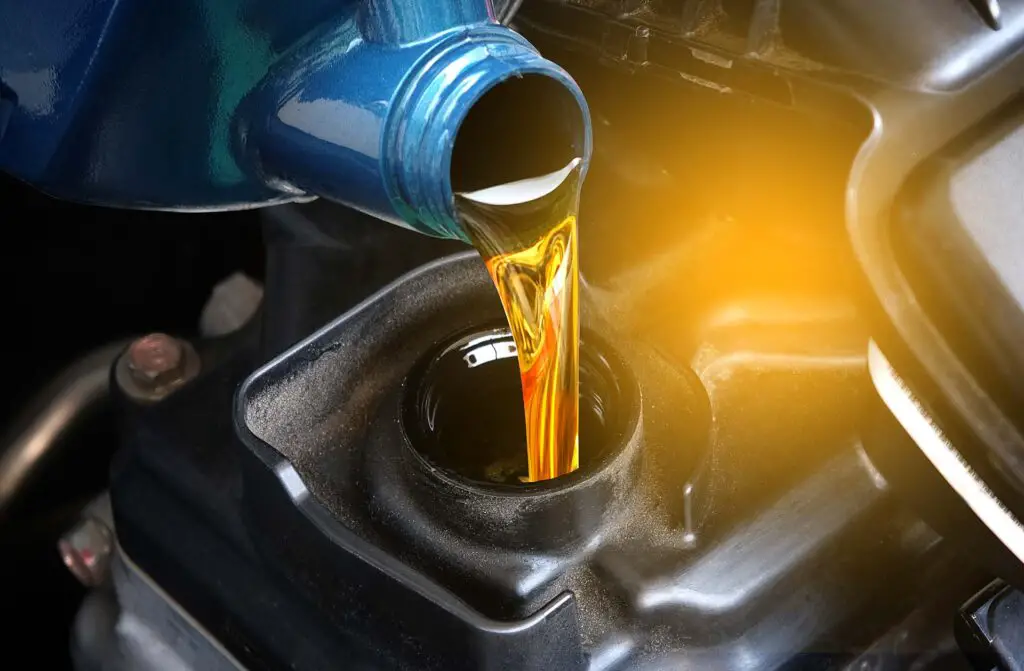
Benefits of Regular Oil Changes
Regular oil changes are like giving your car a health boost. They keep the engine clean, efficient, and ready for action, reducing the risk of expensive breakdowns. Staying on top of this simple maintenance task also helps prevent harmful buildup while ensuring smoother operation.
Wondering how many miles for a synthetic oil change? It depends on your vehicle and driving habits, but sticking to the recommended intervals will ensure your car stays reliable for years to come. Oil changes might seem small, but their benefits add up to big savings and a longer lifespan for your engine.
Extends the Lifespan of Your Vehicle
Keeping up with regular oil changes is the key to a long-lasting engine. Clean oil reduces friction between parts and prevents harmful debris from causing damage. Wondering how many miles between oil changes? Most modern vehicles using synthetic oil can go anywhere from 5,000 to 7,500 miles, but check your manual to play it safe. The cleaner your oil, the healthier your engine, giving your car the best shot at a long and smooth life on the road.
Did you know that, in extreme cases, skipping oil changes can cause your engine to overheat and seize, leading to repairs costing thousands of dollars?
Improves Fuel Efficiency
A well-lubricated engine doesn’t have to work as hard, and that translates to better mileage. Using the engine oil reduces friction, allowing the engine to run smoothly and efficiently. Dirty or old oil, on the other hand, thickens and forces the engine to work harder, which guzzles more fuel. If saving money at the pump is your goal, make regular oil changes a habit. Your wallet (and your gas tank) will thank you.
Enhances Engine Performance
Fresh oil is like a clean slate for your engine. It keeps all the parts moving in perfect harmony and prevents overheating caused by friction. Choosing the best synthetic motor oil brand or even the best oil filter for your car ensures the engine stays clean and free of sludge. Whether you drive a compact sedan or need the oil for a diesel engine, the right oil change improves responsiveness and keeps your vehicle performing at its peak.
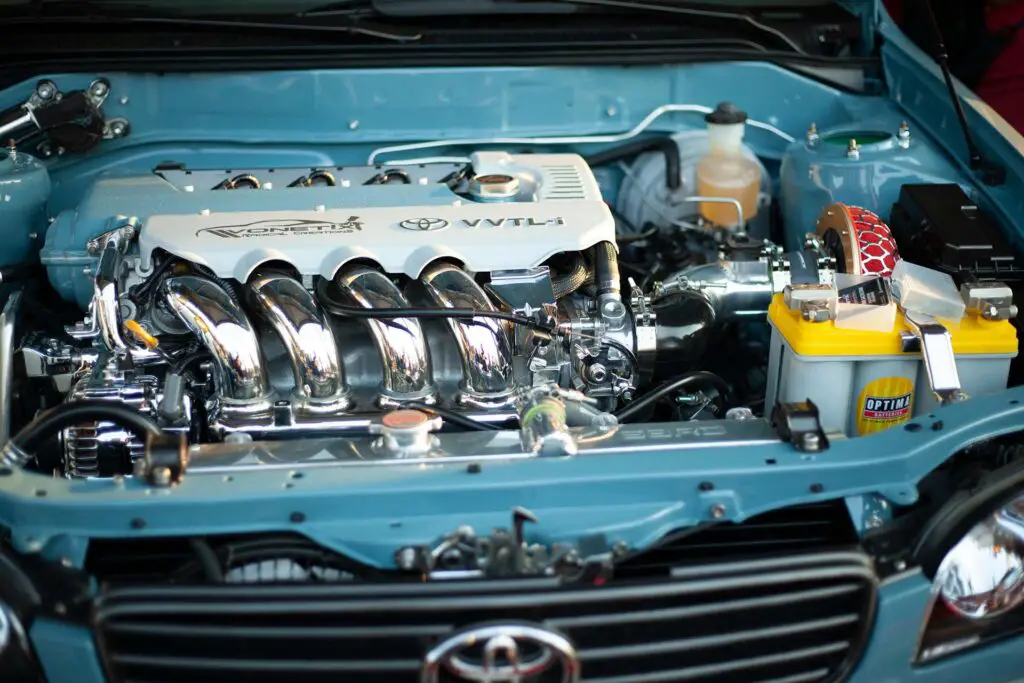
What Happens If You Skip Oil Changes?
Skipping oil changes might seem harmless at first, but it can quickly snowball into serious engine problems. Why is it important to change your oil regularly? Because neglecting it can turn minor issues into costly repairs. Here’s what can happen:
- Increased Engine Wear and Tear – Old oil breaks down over time, losing its ability to lubricate and protect. Without proper lubrication, engine components grind together, leading to faster wear and irreversible damage.
- Risk of Overheating and Engine Failure- Oil not only reduces friction but also helps regulate temperature. Dirty, degraded oil can’t cool the engine effectively, increasing the risk of overheating and, ultimately, engine failure.
Poor Fuel Economy and Performance –When oil thickens and sludge builds up, your engine has to work harder to function. This decreases fuel efficiency, weakens performance, and burns more fuel, costing you extra at the pump.
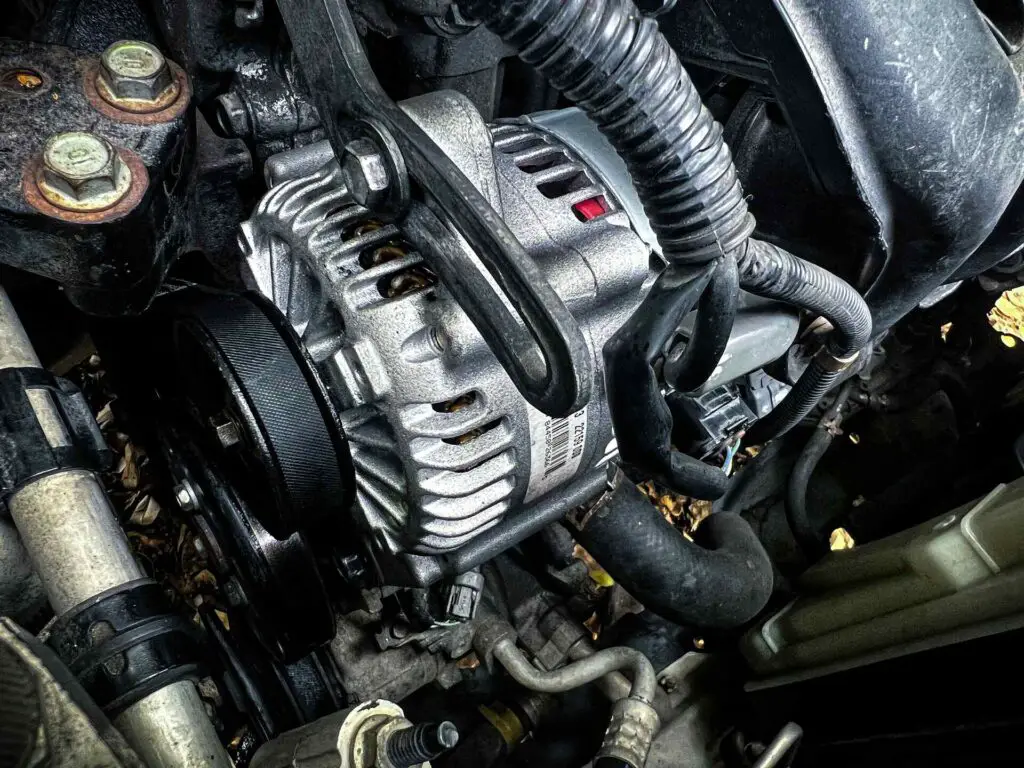
Signs Your Car Needs an Oil Change
Recognizing when it’s time for an oil change is crucial to keeping your car running smoothly. Ignoring the signs can lead to costly engine repairs and a major headache. Whether you’re driving one of the best cars for city driving or aiming for the world’s safest car, regular oil changes keep your engine performing its best.
By paying attention to subtle warnings, like strange noises or dirty oil, you can avoid turning small problems into serious ones. Knowing when to act is one of the key drivers’ responsibilities to keep their car in tip-top shape.
Warning Lights on Your Dashboard
Your car has a built-in way of screaming for help and warning lights. If the oil pressure or check engine light pops up, don’t ignore it. One of the responsibilities is to address these signals promptly to avoid long-term damage.
Ignoring the warning can lead to bigger issues, like clogged systems that may affect what comes out of a car exhaust, such as harmful emissions. Pay attention; your dashboard is trying to save you time and money.
Dark, Dirty Oil on the Dipstick
Checking the engine oil level in a car is a skill every car owner needs. Pull out the dipstick, and if the oil looks dark, gritty, or has a burnt smell, it’s past its prime. Clean oil is golden, but when it’s dirty, it loses its ability to protect the engine. Regular oil changes ensure your car stays in good shape and avoid a scenario where you’ll need penetrating oil for a seized engine to deal with major damage.
Unusual Engine Noises
Engines are supposed to purr, not clunk, grind, or knock. When the oil gets old and loses its lubricating power, parts start colliding, causing strange sounds. If neglected, it could snowball into major repairs. Oil changes are a simple fix, ensuring your engine stays healthy. Even the most expensive cars need regular maintenance because neglect can turn the smooth ride of today’s vehicles into something resembling the early stages of the evolution of cars: clunky, loud, and inefficient.
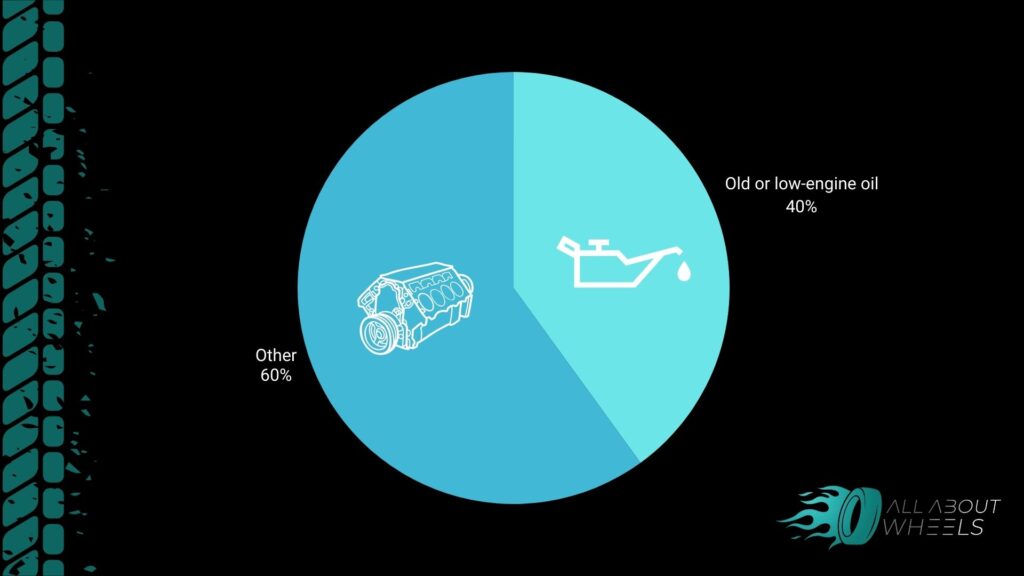
How Often Should You Change Your Oil?
Oil change schedules aren’t a one-size-fits-all deal. The type of car you drive, your daily commute, and even the weather all play a role. While some stick to the old 3,000-mile rule, newer cars can go much further, especially with high-quality oil. The best approach? Check your owner’s manual, and don’t rely on guesswork. Regularly changing your oil keeps your engine happy and your wallet safe from bigger repair bills down the road.
Did you know that about 22% of drivers admit they’ve gone longer than recommended between oil changes?
DIY vs. Professional Oil Changes
Changing oil yourself might sound tempting – no appointment, no waiting room coffee, just you, a wrench, and a Saturday afternoon. It’s cheaper upfront but can get messy, and let’s face it, not everyone wants to crawl under a car. Professional oil changes, on the other hand, come with expertise, quick service, and peace of mind. Plus, they’ll often check for other potential issues. DIY works for enthusiasts, but if you’d rather avoid the grease, let the pros take over.
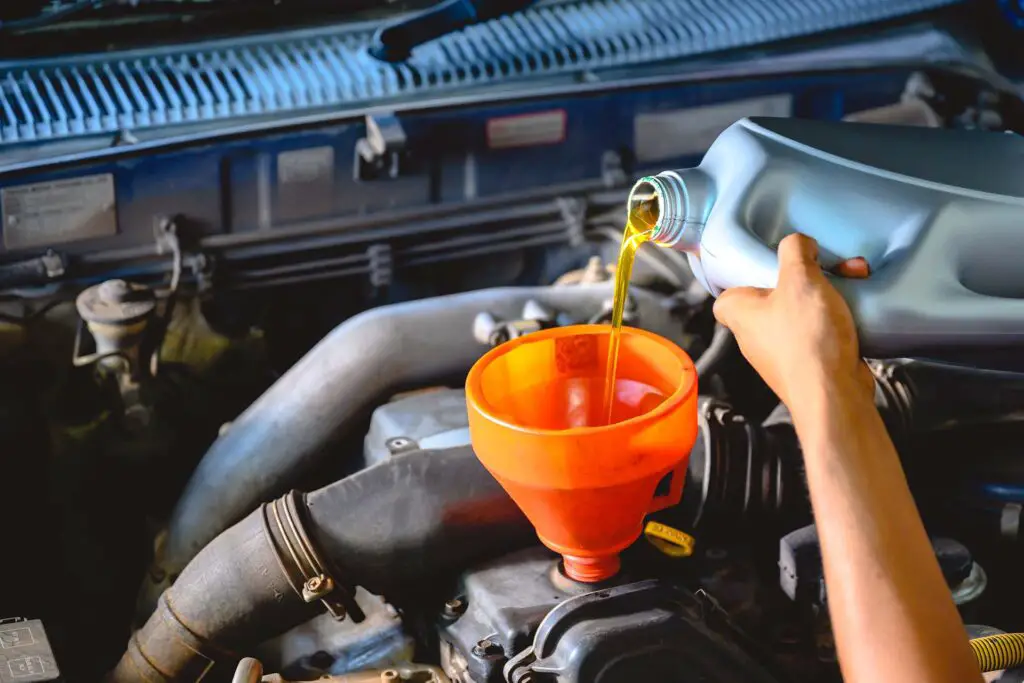
The Cost of Skipping Maintenance
Skipping oil changes is like skipping dental cleanings, you think you’re saving time and money, but it’ll catch up with you in the worst way. Old oil turns into sludge, parts wear out faster, and before you know it, you’re looking at repairs that could’ve been avoided. What’s worse? An engine replacement isn’t exactly cheap. A little maintenance now goes a long way, so don’t let procrastination turn into a much bigger expense.
Choosing the Right Oil for Your Vehicle
Picking the right oil can feel like choosing between 30 brands of cereal, overwhelming. But it doesn’t have to be. Your owner’s manual is your best friend here, as it tells you exactly what your engine needs. Whether you’re driving an old-school classic or a modern beast, the right oil keeps everything running smoothly. Don’t skimp on this choice. Oil is your engine’s lifeline, and the right type makes all the difference.
Conventional vs. Synthetic Oil
Here’s the showdown: conventional oil is the old, reliable, cheaper upfront but less refined. Synthetic oil, on the other hand, is like the superhero of engine protection, cleaner, longer-lasting, and better for high-performance or extreme conditions. If you drive a lot or want fewer oil changes, synthetic might be worth the extra bucks. Conventional is great for basic needs, but synthetic gives your engine a little VIP treatment. Choose based on your car’s needs and your driving habits.
Understanding Oil Grades and Viscosity
Oil grades and viscosity might sound like car-geek lingo, but they’re pretty simple. The numbers you see on the bottle, like 5W-30, basically tell you how the oil flows in different temperatures. The first number (5W) is for cold starts, while the second number (30) is for when the engine heats up. Choosing the right grade keeps your engine protected no matter the weather or driving conditions. Don’t overthink it, your manual has the answer, and it’s always better to stick with what’s recommended.

Keep Your Engine Happy with Regular Oil Changes
At the end of the day, oil changes are the unsung heroes of car maintenance. They keep your engine clean, cool, and efficient, saving you from bigger issues down the road. Sure, it’s easy to put off, but skipping this simple task can cost you big time in repairs. So, whether you’re DIY-ing or hitting up a professional, staying on top of oil changes is the smartest move you can make for your car.








